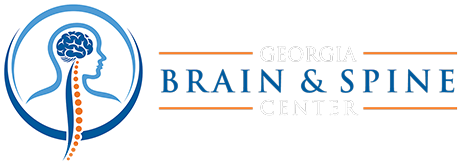At Georgia Brain & Spine Center
Low back pain and sciatica are extremely common and are some of the most common reasons that people seek medical attention. Fortunately, about 90% of people will improve within one month with little or no treatment. For others, however, low back pain can become a severe, disabling, and persistent condition that will not get better without intervention. Low back pain might occur with or without sciatica – pain shooting down the legs – which is a sign of spinal nerve root compression. These symptoms are nonspecific and the cause can sometimes be difficult to identify. Potential sources of low back pain and sciatica include muscle sprain, degenerative disc disease, lumbar disc herniations, osteoarthritis, bone spurs, narrowing of the lumbar spinal canal, spondylolisthesis (slipping of one bone over the other), inflammation of the sacroiliac joint, or infection of the bone.
Treatment
If you have lower back pain or sciatica, our neurosurgeons will perform a comprehensive history and physical exam focused on trying to understand the underlying source of your pain. Often, imaging studies such as X-rays, CT scans, and MRI scans will help us to make the diagnosis and to rule out “red flag” conditions such as infections, cancer, spinal fractures, and critical narrowing of the spinal canal. Before considering surgery, we will attempt a variety of conservative non-operative treatment strategies such as physical therapy, analgesics, and muscle relaxants. We will also offer you spinal injections including epidural injections, trigger point injections, and lumbar facet injections which can provide temporary or long standing relief in select patients. Our surgeons can offer you these injections in our office – without the need to wait for an appointment with another physician. Finally, once we have maximized and exhausted all non-operative treatment strategies, we will consider surgical options. Our surgeons will tailor a surgery based on your symptoms and the unique anatomy of your spine. This might include lumbar laminectomy for decompression of the nerve roots, removal of an intervertebral disc herniation, spinal fusion with pedicle screws, or any combination thereof. Our surgeons will also evaluate whether you are a candidate for Minimally Invasive Spine Surgery or if you would benefit more from a traditional “open” approach that allows for greater visualization during surgery.
